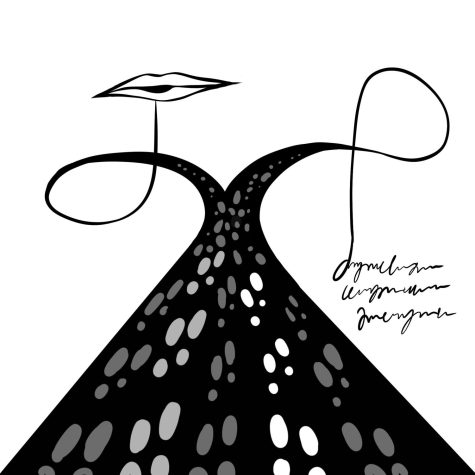From sonnets to PewDiePie: Whitman seniors discuss their final exams
March 9, 2023
This spring, as with every spring, conversations among many seniors in their second semester have centered around their final exams. They toss around words like “orals,” “writtens,” “my thesis” or even “capstone.” However, many underclassmen have no idea what senior exams look like, and many upperclassmen aren’t aware of what exams are like outside their own major(s).
Cana Baez, an English major with a computer science (CS) minor, originally planned to major in CS. However, as much as she enjoyed it, she realized that the work did not come organically to her the way that English did.
“It wasn’t something that I turned to in my free time. I would do programming for courses, but not really much beyond that. And English, I found, was something that I always turn to,” Baez said. “When I was angry, sad, upset [or] bored, I would read or write. I was like, I think this is something that I really want to pursue because it’s what feels the most natural to me.”
She still enjoyed CS, so she put the classes she’d taken towards a minor instead.
As an English major, Baez’s final exam had two parts: the written component and the oral component. For their written exam, English majors were required to take a fall seminar course in which they wrote a 20 page paper. Baez chose to write about Rita Dove’s sonnet “Mother Love.” Over winter break, students revised their paper and turned it in, along with a reflection letter.
Orals were focused on a different text entirely – each student was assigned a short text to formulate a thesis on, which they presented and answered questions on to two professors. Baez was given a short story by Kate Chopin, and she formulated a thesis about the author’s use of French and American dialects throughout the piece.
“My thesis ended up being about how Chopin’s very precise dialect use emphasized the class distinctions, which in turn informed how certain characters would act in accordance with their status. Also, where they rebelled against those expectations,” Baez said.
Overall, Baez enjoyed the process.

“It was really rewarding. It felt cool to be given a task that was so large, chunk it up, do my best at it and learn a bunch of new skills,” Baez said.
Brit Mendel, an art – environmental studies major shifted her area of study from biology when she realized that she wasn’t really enjoying her upper-level biology courses.
For environmental studies (ES), Mendel reported that students have to do a large research paper at the end of their seminar course, similar to the English major. However, her seminar course is this spring rather than last fall. Her course ends in April.
For art, Mendel has a thesis exhibition in the Sheehan Gallery in mid-April, after which she’ll schedule her orals. Because it’s a combined major, Mendel said that she doesn’t have to do orals for ES, but her art orals will incorporate ES, as well.
Mendel mentioned that it was interesting to have switched majors later in her college career.
“I kind of joined the art party a little bit late, so I’ve had to do a lot more art and art history courses this last year, which has been really fun. I’m glad that I’ve gotten to do that,” Mendel said. “It’s been very heavy on major requirements last semester, which I know doesn’t seem too typical. It feels like a lot of people have a lot of stuff taken care of already.”
However, she’s enjoyed the process, and encouraged other students to come to the exhibition in April.
Morgan Stone, a film and media studies (FMS) major, did not end up majoring in what she originally planned to. Stone, a transfer student, was originally going to be a film production major at her previous institution.
“I [realized] I don’t actually like making the stuff as much as I love learning and thinking about it,” Stone said. “I transferred schools because I really liked the program here, and the professors are just, all three of them, amazing. I just really enjoy thinking about how media impacts people, and how culture also impacts media. It’s kind of a circular ordeal.”
For her final project, Stone described writing a 20 page thesis paper, which she will then have to present to her graduating class and all three FMS professors as her oral exam. Additionally, because she is pursuing honors, she had to write a second thesis – although she mentioned that this requirement is supposed to change for upcoming classes.
For both of her theses, Stone focused on different aspects of YouTube.
“My first thesis was about why people like two-hour to eight-hour long video essays about 2000s TV shows. There are lots of those Victorious 10-hour video essays, and they get millions of views. I was able to interview the people who make those,” Stone explained. “My second thesis is about PewDiePie on YouTube, and it is still kind of coming together. Basically, [I’m] just looking at his fan base and how they interact with each other and him.”
With many majors, the final semester of senior year looks very different from student to student. Some majors, like Japanese, require a final capstone project, while others, like physics, have a take-home test as part of their final. Requirements for each major can be found online on each department’s web page.
As the year ends, more seniors will be putting their talents on display for a final time – the senior theatre majors each acted in a show as part of their thesis, the music majors are all putting on their recitals and many students will be presenting at next month’s Whitman Undergraduate Conference. Go out, take a look and support your fellow students – you never know what you might learn.




